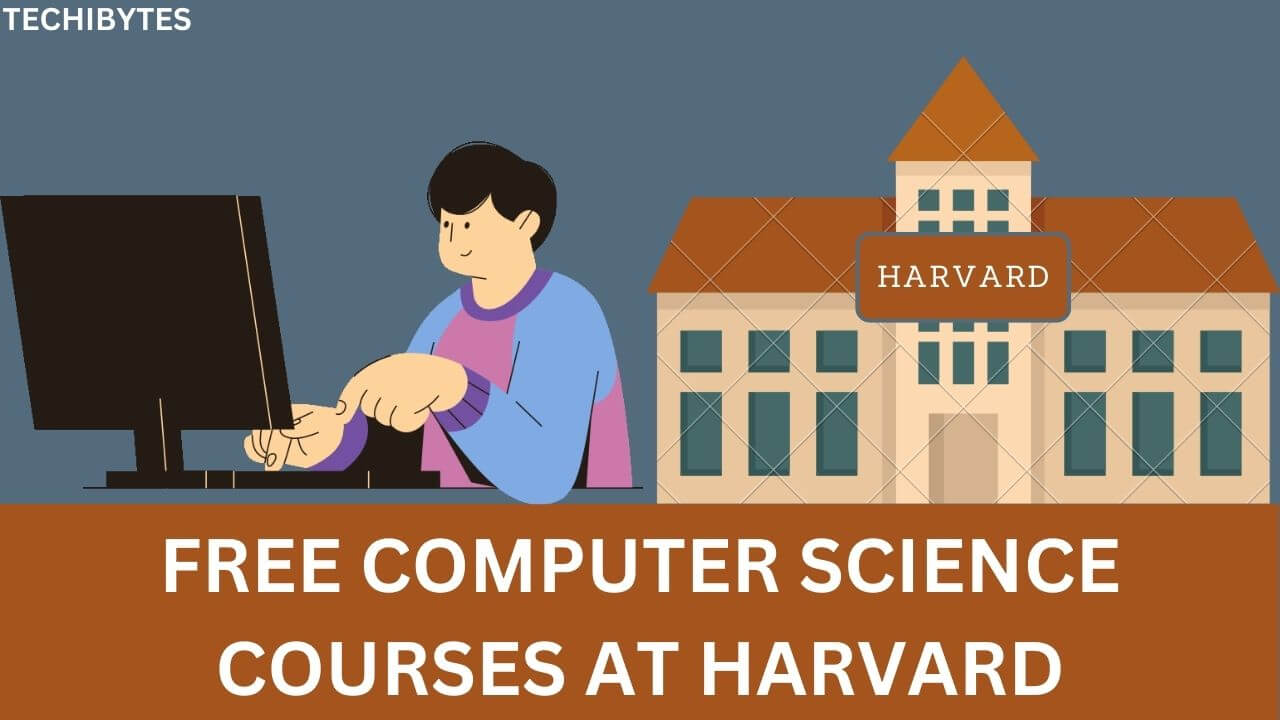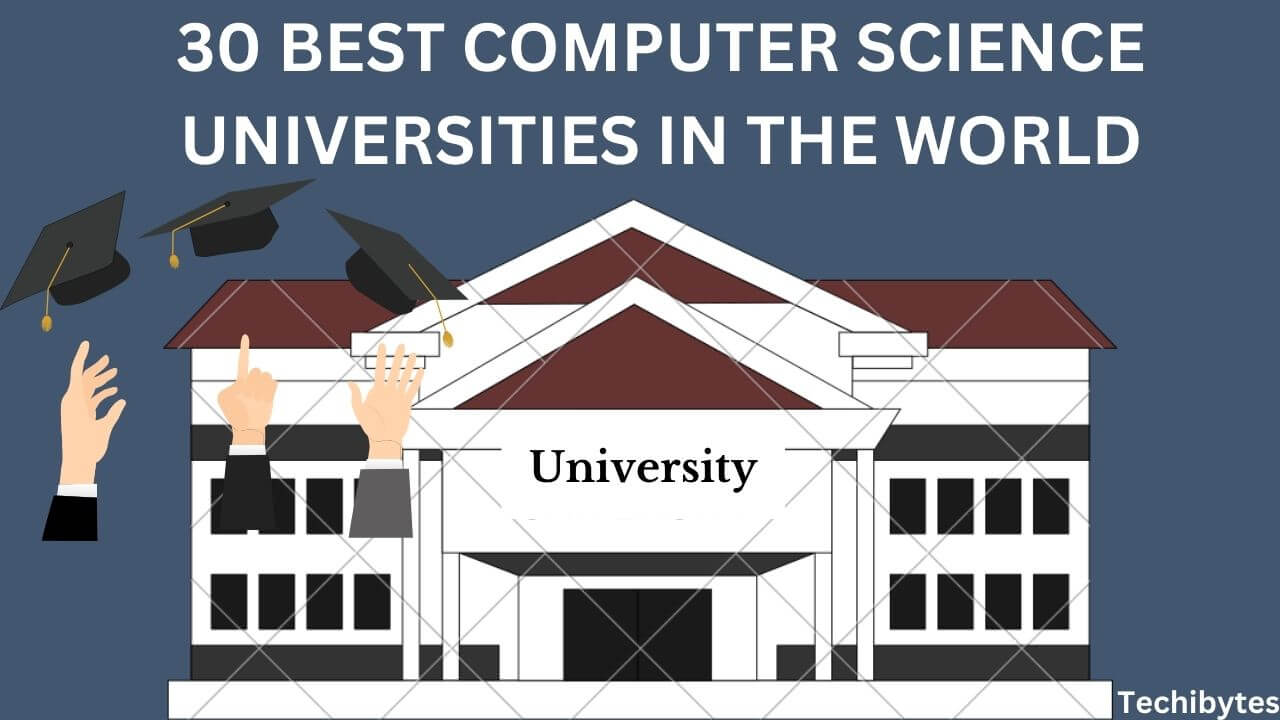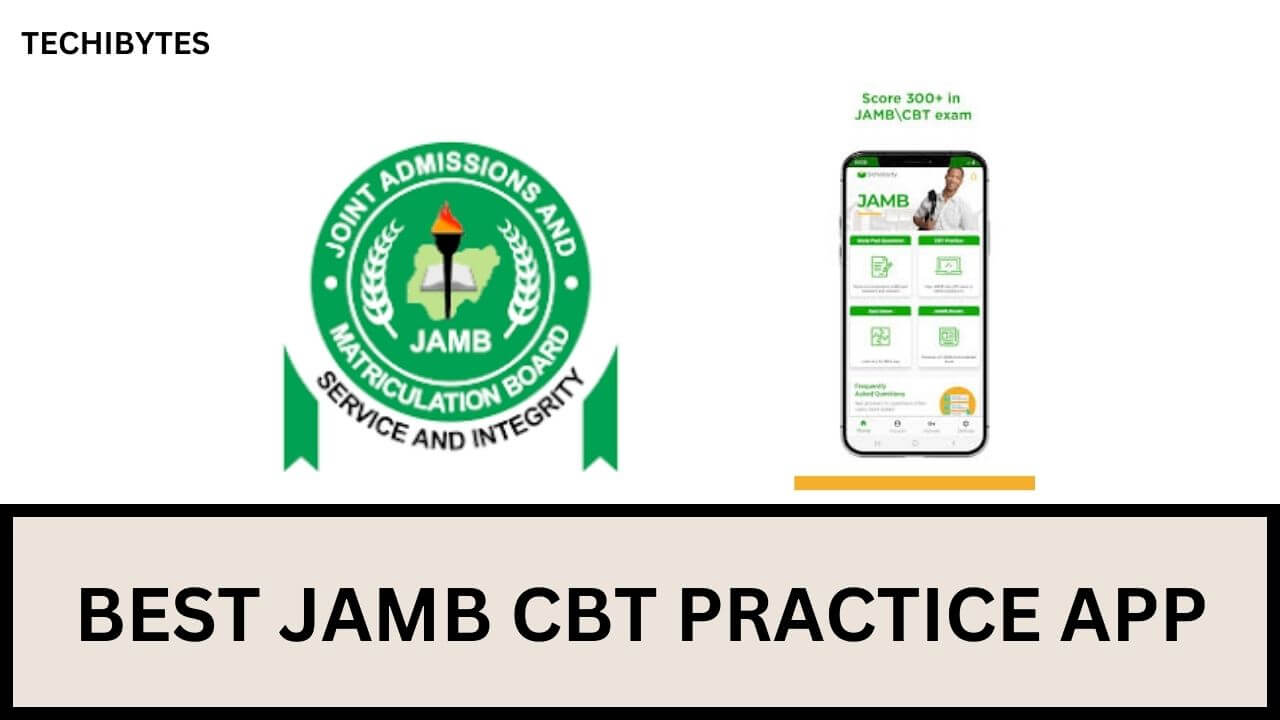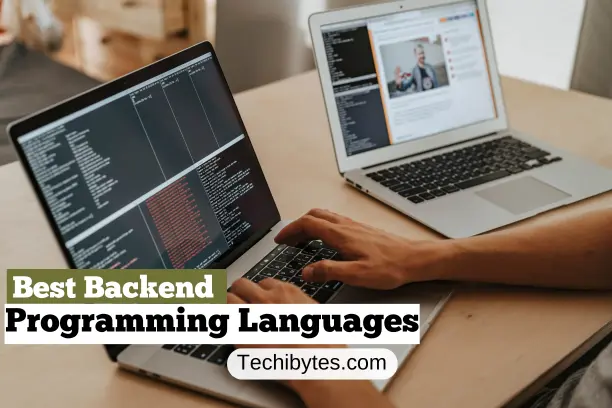The Harvard School of Engineering is responsible for computer science education at Harvard University. Free computer science courses at Harvard are well-liked because of their ability to instruct students in the principles of computing and worldwide engagement with computation, not to mention you don’t have to pay for it.
Whether you’re planning on a career in law, art, physics, or engineering, a computer science course from Harvard can help you learn new programming languages, build new algorithms create systems for all of these professions, and more.
Learning computer science fundamentals at Harvard will speed up your progress toward your goal of learning to code so that you can launch a career in technology and make money coding.
We’ve compiled a list of the top free computer science courses at Harvard to take if you’re just getting started in the field and want to master the fundamentals or if you are an expert who wants to improve your skills.

What is a computer science course?
The primary topics of study in a computer science course include the components and workings of computers and their hardware, software, and applications. Computer studies are divided into two distinct subfields: fundamentals and computer science.
Primarily, this encompasses keyboarding or computer typing, computer fundamentals, drawing tools, and basic operations like creating folders, programming, coding, saving files, transferring data to another device, sharing data, writing and editing documents, performing essential computer maintenance, and using productive apps, tools, and the internet.
7 free computer science courses At Harvard
Harvard is ranked the third best university in the world and the fourth-best university to study computer science. Why not take this opportunity to take one of the free computer science courses at Harvard in 2023?
- CS50: Introduction to Computer Science
CS50x is an introductory course in computer science and programming designed to teach students of all backgrounds (majors and non-majors) the fundamentals of the field.
Abstraction, algorithms, data structures, encapsulation, resource management, security, software engineering, and web development are just some topics this free computer science course at Harvard covers. C, Python, SQL, JavaScript, and even CSS and HTML are all examples of such languages.
Though the course is free, you will need to pay $149 to get the certificate they award to students who complete nine problem sets (i.e., programming assignments) and a final project. You can start CS50x whenever convenient, as it’s a self-paced online course on edX.
- CS50’s Introduction to Game Development
Our second top course of free computer science courses at Harvard is Introduction to game development. In this course, you’ll learn the fundamentals of game development by dissecting the code behind classics like Super Mario Bros., Pong, Flappy Bird, Breakout, Match 3, Legend of Zelda, Angry Birds, Pokémon, 3D Helicopter Game, Dreadhalls, and Portal.
In lectures and labs, you will learn the principles of 2D and 3D graphics, animation, music, and collision detection utilizing frameworks like Unity and LVE 2D and languages like Lua and C#.
The course is self-paced and a hundred percent free; however, you will need to pay $199 if you want to acquire a certificate after 12 weeks of this course. You may learn the basics of game programming and utilize that knowledge to make various games, whether you opt for the paid version or the free one.

- CS50’s Introduction to Programming with Scratch
Scratch is a visual programming language that allows budding programmers to create programs by arranging puzzle-like graphical blocks rather than inputting text. Scratch was developed at MIT’s Media Lab to enable students with no programming knowledge to create their animations, games, interactive art, and tales; it is used at the beginning of Harvard College’s introductory course in computer science, CS50.
This course uses Scratch to teach students the basics of programming, including concepts that can be applied to Scratch and more conventional text-based languages (such as Java and Python). Functions are instructions that carry out tasks; return values, which are the outcomes of those functions; conditions, which allow programs to determine whether or not to act; and many more. Students will leave this course well-prepared for further study in computer science.
You may audit this free computer science course at Harvard, but you will have to pay $199 if you want an accredited Harvard certificate.
- Fundamentals of TinyML
TinyML is where Machine Learning (ML) algorithms, hardware, and software all meet in the middle. TinyML differs from traditional forms of machine learning (such as server and cloud) in that it calls for knowledge of software and embedded hardware.
Learn the fundamentals of machine learning, deep learning, and embedded devices and systems like smartphones and other tiny devices in the first course in the TinyML Certificate series, Fundamentals of TinyML.
Data science methods for data collection and comprehension of learning algorithms for training simple machine learning models are covered extensively throughout the course. Following this course, you will have a firm grasp of the “language” underpinning TinyML and be prepared to delve headfirst into the application of TinyML in subsequent classes. Remember that this course is free, but the accredited certificate costs $199.
- Applications of TinyML
Applications of TinyML is a follow-up course to the Foundations of Tiny ML that will show real-world examples of how tiny machine learning is used. In this course, taught by experts in the field, students will analyze real-world case studies focusing on the difficulties of deploying software on extremely compact or embedded devices.
TinyML, Keyword Spotting, Visual Wake Words, Anomaly Detection, Dataset Engineering, and Responsible AI are all covered, as are their practical commercial applications.
One of the most dynamic subfields in deep learning, Tiny Machine Learning (TinyML) is also becoming one of the most approachable. Applications of TinyML is the second course in the TinyML Professional Certificate curriculum, and it teaches you the language underlying some of the most popular TinyML gadgets in the world. The fee for the accredited Harvard certificate costs $199, but you may take the course without paying for that.
- Deploying TinyML
Deploying TinyML is a five weeks long course that will teach you how to use the program, create the necessary code, and implement the model on your microcontroller-based device. Implementing a full-fledged TinyML app will be completed before you realize it.
The TinyML Program Kit, used in the course’s hands-on projects, consists of an Arduino board, various sensors, and an ARM Cortex-M4 microcontroller. The toolbox contains everything you’ll need to create programs that utilize image and sound processing and gesture recognition. A miniature machine-learning application will be in your hands before you know it.
One of the most popular subfields of deep learning, Tiny Machine Learning (TinyML), is also one of the most accessible. Deploying TinyML, the third course in the TinyML Professional Certificate program gives students practical experience deploying TinyML on a real-world device.
Just like the other free computer sciences courses at Harvard, you need to pay a fee to get a certificate, and the cost for this is $199.
- Quantitative Methods for Biology
This free computer science at Harvard is for biologists, health workers, or medical students who want to learn computer programming.
This course is for both beginners and expert programmers. Throughout the course, all students will have free access to a copy of MATLAB. You’ll get the chance to put your coding skills to the test and work on real-world projects by incorporating code into your assignments.
Assignments in this course are also designed to evolve with the needs of the students. You’ll need to solve fewer problems to pass the course if you’re already quite good at it. The instructors will ensure you get the necessary practice if you’re having problems.
You can audit this course for free, but you will need to pay $99 for an accredited certificate.

Some other computer science courses at Harvard (Paid)
While this article is about free computer science courses at Harvard, this section will cover the least expensive paid courses offered by Harvard.
- Introduction to Data Science with Python
This self-paced course will teach you how to use Python for your data science projects! Upon completing this course, you will have a firm grasp of the fundamentals of Machine Learning (ML) and Artificial Intelligence, including: (AI).
Gaining proficiency in Python through this course is a significant first step in learning more advanced topics in Machine Learning (ML) and Artificial Intelligence (AI) and advancing in your chosen profession.
Students entering this course should have a firm grasp of programming fundamentals (ideally in Python) and basic statistics.
This eight-week online course costs $199 and comes with a certificate of completion from Harvard University.
- Web Application Development using Node.JS
Through the use of JavaScript and the node.js framework, this course introduces students to the world of web application development. Using the MEAN stack (MongoDB, Express.js, Angular/Angular 2, node.js), students are introduced to the fundamentals of server-side web development.
The MEAN stack consists of the application server (node.js), the Model View Controller (MVC) frameworks utilizing Express.js, the front-end frameworks (Angular), and the databases. The course teaches students software development concepts you can use in any web development environment (MongoDB).
Building web APIs and full-stack JavaScript apps using the MEAN stack and adhering to the best application development standards are all covered in this course. Although familiarity with client-side web programming (HTML/CSS/JavaScript) is necessary, experience with server-side application development is optional. The cost of this computer science course at Harvard is $1,980.
- Introduction to Artificial Intelligence with Python
This course delves deeply into the principles and algorithms that form the backbone of contemporary artificial intelligence, discussing the ideas that have led to the development of tools like game-playing bots, handwriting recognition systems, and translation machines.
Students learn the theory underlying artificial intelligence and machine learning concepts such as graph search algorithms, classification, optimization, and reinforcement learning as they use these concepts in practice in their Python projects.
Here are some Python frameworks for web development
By the end of the course, students will have a background in artificial intelligence principles and library experience enough to create their intelligent systems. You need to pay $1,980 to enroll in this course.
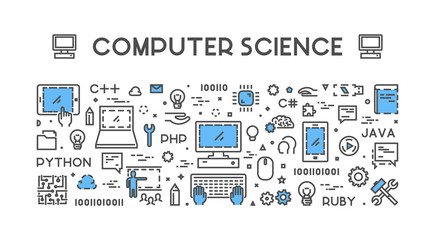
Is getting the certificate necessary?
Several positions in the field of computer science do not necessitate certification. Nevertheless, it is helpful in some situations.
Having a credential in the field of computer science might prove to prospective employers that you are competent in the area, opening up doors to higher-paying opportunities. By making you a more valuable employee, they can even aid in keeping your existing employment.
In the field of computer science, credentials like these are highly esteemed. This is so because a professional group or academic institution like Harvard guarantees the quality of these credentials.
Final thoughts on 7 free courses at Harvard
Whether you’re just starting or are already an accomplished programmer, this article will help narrow down your options for a computer science degree.
You should take advantage of the free computer science courses at Harvard as soon as possible because they may only be available for a while.
We wish you the best of luck as you pursue your interest in computer science.
If you liked this article, then please subscribe to our YouTube Channel for videos. You can also find us on Twitter and Facebook
